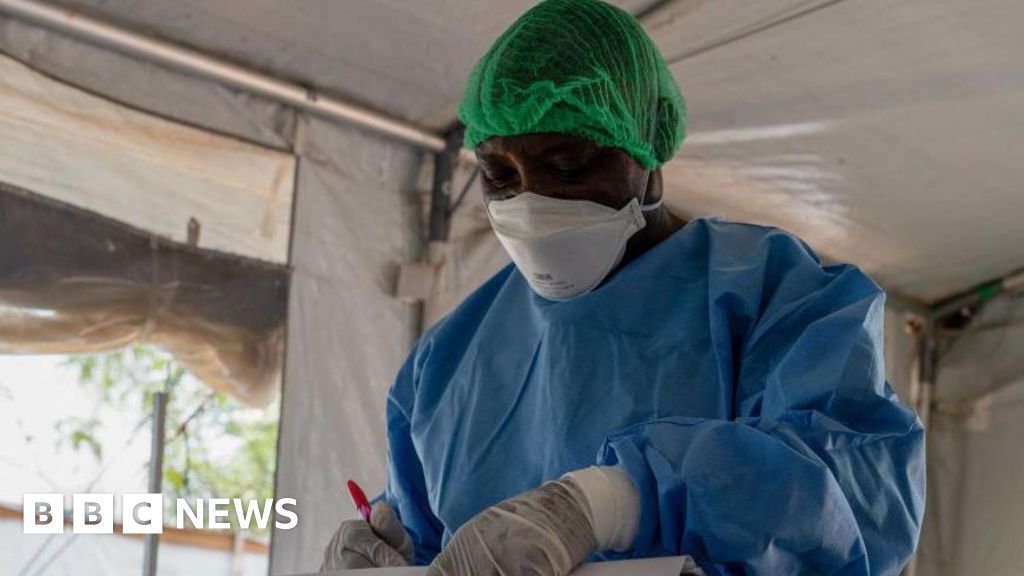The head of UN Peace Operations on Monday said ambassadors in the Security Council had given a “unanimous expression of support” to peacekeepers in Lebanon remaining in position along the Blue Line that separates south Lebanon from Israel, despite coming under fire, with five “Blue Helmets” sustaining injuries following attacks by Israeli forces.
Jean Pierre Lacroix was speaking to the media at UN Headquarters in New York after emerging from a closed door meeting on peacekeeping mission UNIFIL, amidst Israeli calls for the force to vacate the area and move further north.
The peacekeeping chief said lines of communication with Israel remained open and there had been no incidents or attack on UNFIL positions on Monday, stressing that it was for Hezbollah, Israel and other parties to implement Security Council resolution 1701, with UNIFIL present to provide support, in line with their mandate.
Watch the full stakeout below:
Uncertainty, anxiety in Lebanon
Addressing the UNHCR Executive Committee in Geneva earlier on Monday, High Commissioner Filippo Grandi said that nowhere is “uncertainty and anxiety more palpable at the moment than in Lebanon”.
“Uncertainty clouds the lives of ordinary civilians in Lebanon today. Surely, if airstrikes continue, many more will be displaced and some will also decide to move on to other countries,” he said.
Mr. Grandi reiterated the urgent need for a ceasefire in Lebanon as well as in the Gaza Strip: “A ceasefire that is sustained by a meaningful peace process, difficult as it may be. This is the only way to break the cycle of violence, of hatred, and of misery,” he stressed.
UNIFIL stands firm
UNIFIL troops remain in their positions, under the mandate of the Security Council, despite being targeted once more over the weekend.
Five peacekeepers have been injured, peacekeeping positions breached and damaged, with movement hampered by Israel Defense Forces (IDF) over recent days, against the backdrop of skyrocketing tensions, ongoing shelling from Hezbollah and Israel – and more incursions into Lebanon by the IDF.
“We need to be there, we need to have an impartial force in southern Lebanon that can still report to the Security Council,” UNIFIL Spokesperson Andrea Tenenti said, speaking to UN News in an interview on Monday.
Established by the UN Security Council, UNIFIL is tasked with monitoring the cessation of hostilities following the 2006 war between Israel and Hezbollah, confirming the withdrawal of Israeli forces from southern Lebanon, and assisting the Lebanese government in restoring its authority in the area.
Though the Mission is not able to aid local communities and its monitoring capabilities have been limited due to the ongoing shelling and bombing, Mr. Tenenti emphasized that its role right now is perhaps “more crucial than ever”.
“So, it is important to keep an international presence and to keep the UN flag in the area.”
Over 1.2 million displaced
Meanwhile, the humanitarian situation across Lebanon continues to deteriorate, with more than 1.2 million people displaced from their homes, according to UNHCR.
The agency is stepping up its emergency response and providing critical assistance to both Lebanese as well as refugees who were sheltering there before the hostilities escalated.
“The streets of Beirut are filled with people struggling to find shelters. Humanitarian needs are significantly increasing,” UNHCR said in a post on X.
Furthermore, hundreds of thousands of Lebanese civilians have crossed into Syria under difficult circumstances, many among them women and children.
Impact on children
The dramatic escalation has also severely impacted children. According to the UN Children’s Fund (UNICEF), they make up a third of the total number driven from their homes.
Ted Chaiban, UNICEF Deputy Executive Director, explained that many of the affected children have been taken in by relatives or family friends but some are in shelters.
Speaking from a school-turned-shelter in Zahle, eastern Lebanon, he said UNICEF is supporting families with nutrition, and psychosocial support and learning activities for children.
It is also making sure that there is water and sanitation facilities for a school that is not equipped to receive over 400 people.
“What the country really needs is an end to violations of international humanitarian law, protect civilians and civilian infrastructure and a ceasefire,” Mr. Chaiban said.
“This madness has to stop.”
Where next?
Latest news
Read the latest news stories:
- Child Exploitation on the Internet Threatens the Next Generation Monday, October 14, 2024
- UN Goal to End World-Wide Hunger by 2030 is Destined to Miss the Target Monday, October 14, 2024
- Building Resilience Against Climate Risks: The Transformative Role of Social Protection Monday, October 14, 2024
- When Will World Food Day be a Day to Actually Celebrate? Monday, October 14, 2024
- Building Water Security for the Next Generation in the Pacific Territories Monday, October 14, 2024
- ‘Africa must continue to rise,’ says General Assembly President Monday, October 14, 2024
- Gaza: UN chief condemns rising civilian casualties in the north Monday, October 14, 2024
- Lebanon: Security Council offers ‘unanimous support’ to UNIFIL peacekeepers Monday, October 14, 2024
- Gaza: School set for polio vaccine campaign hit in deadly strike, says UNRWA Monday, October 14, 2024
- UN chief calls for safety of peacekeepers after IDF breaches UN position in Lebanon Sunday, October 13, 2024
Link to this page from your site/blog
Add the following HTML code to your page:
<p><a href="https://www.globalissues.org/news/2024/10/14/37959">Lebanon: Security Council offers ‘unanimous support’ to UNIFIL peacekeepers</a>, <cite>Inter Press Service</cite>, Monday, October 14, 2024 (posted by Global Issues)</p>… to produce this:
Lebanon: Security Council offers ‘unanimous support’ to UNIFIL peacekeepers, Inter Press Service, Monday, October 14, 2024 (posted by Global Issues)

 1 month ago
9
1 month ago
9










 English (US) ·
English (US) ·